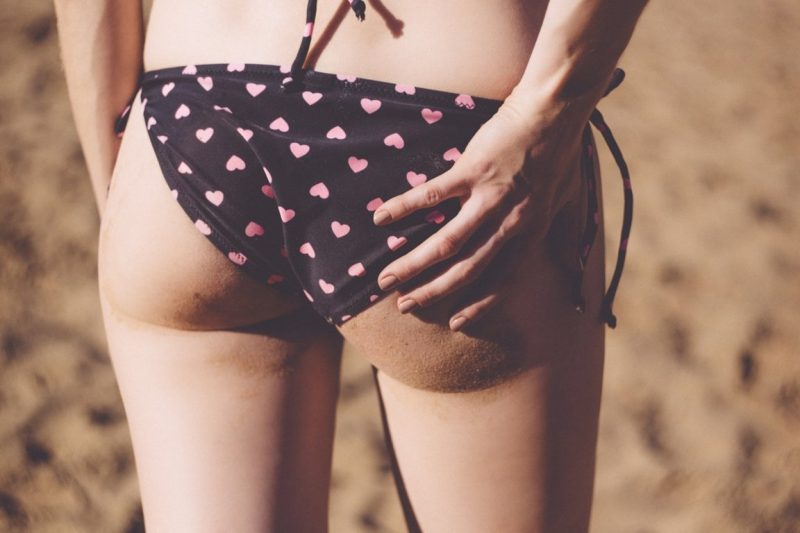 If you’re like most people, reading the title of this article either causes you to giggle and roll your eyes or invokes a sense of embarrassment because this is something you have or are dealing with.
If you’re like most people, reading the title of this article either causes you to giggle and roll your eyes or invokes a sense of embarrassment because this is something you have or are dealing with.
If you’re in the latter category, know you’re not alone!
An itchy rear is far more common than you might think and could have a variety of causes that are important to address.
There are many possible causes for anal itching, most of which are not severe.
No matter what the reason is behind the itch, it is important to not scratch!
Scratching damages the skin which can result in further itching, thereby creating an itch-scratch cycle that seemingly never ends.
Depending on the cause, there are specific solutions that can stop the itching and prevent it from recurring in the future.
To help determine the cause of one’s itching, first consider these questions:
1. How often does the itching occur?
2. How long does the itching persist?
3. Are there certain times during the day when the itching is more likely to happen?
4. How would you describe the itch (burning, tickling, etc.)?
5. Does itching occur after specific activities?
6. Is your anus red, cracked, raw, etc.?
Once you have discussed these questions with a healthcare professional, the cause can be more easily determined.
Here are a few of the common causes behind anal itching and remedies for each.
Improper hygiene — one of the most common reasons for itching is fecal matter that has not been fully removed or has “leaked” out due to health issues like Irritable Bowel Syndrome (IBS).
Thankfully, improper hygiene is a simple fix.
If this is the cause, extra care should be taken to cleanse the area thoroughly. Make sure you are wiping properly and be sure to clean the area with soap that has no perfumes, dyes or other irritants and allow it to dry completely—air dry or patting (not rubbing) with a towel. It is important to clean regularly, but don’t over-wash this area.
Fungal infection — fungal infections on the anus are typically caused by either an overgrowth of Candida (yeast) or from a fungal infection in another area of the body that has spread.
If the itching is caused by a fungus, it will be accompanied by redness, dryness, and/or a rash that can affect the surrounding skin as well. Be sure to keep the area dry as fungal infections worsen in moist environments. Anti-fungal creams or colloidal silver can be used to treat fungal infections.
Inflamed hemorrhoids — hemorrhoids are a common reason for anal itching because everyone has them. They do not become problematic until they become inflamed for some reason.
Often, this is due to some sort of prolonged straining, constipation or diarrhea. Before starting a treatment, be sure to have any abnormal lump checked by a doctor to ensure that it is not colon or rectal cancer.
Once it is confirmed to be inflamed hemorrhoids, focus on increasing your water and fiber intake, consuming 25g-35g of fiber per day. This will soften your stool and allow it to pass with less strain. If the hemorrhoids remain inflamed, talk to your doctor about other options including suppositories, topical creams or, in extreme cases, surgery.
Sweat — if you sweat and then continue to wear the pants, underwear and/or leggings that you sweated in, the moist environment will contribute to the growth of fungus. Be sure to remove any sweaty clothing and shower thoroughly as soon as possible.
Skin conditions — some skin conditions like eczema or psoriasis can cause an itchy rear. The itching is a result of dry, flaky skin and rashes that typically occurs on other areas of the body like the elbows, knees and scalp, but can sometimes present in folds of the body.
When it comes to skin conditions, seeing a dermatologist may be the best option.
They are able to prescribe creams that will help relieve symptoms after determining what is causing them or making them worse.
STDs — yes, it could possibly be an STD. Herpes is one that can cause painful blisters around the genital area, including the anus, resulting in an itchy backside.
There is no cure for herpes, but there are oral and topical treatments to relieve the symptoms. Gonorrhea is another STD that can cause itching.
It can be cured with the proper medication.
Allergies and Nutrition — if you consume certain foods, they may be irritating to your skin when leaving your body.
Spicy foods, caffeine, beer, dairy, etc. are often culprits behind an itchy rear end.
An itchy anus may also be a sign of an allergic reaction to perfumes, dyes and chemicals in soaps, detergents or clothes.
If you notice an increase in itching after eating specific foods or coming in contact with certain clothes or soaps, reduce your interaction and the itching should subside.
Parasites — parasitic infections are far more common than you might think. According to the CDC, there are over 60 million infections per year.
Pinworms are highly contagious and are more common in children. These parasites behave in specific ways that may give you a good idea as to whether they are the cause for the itching.
Typically, anal itching will get worse at night because these parasites that are living in the rectum will travel outside the anus, lay eggs and then retreat.
As gross as that is, parasites are treatable, so don’t be embarrassed to talk to your doctor about them!
Get treatment started as soon as possible for you and others in your household to get rid of these unwelcome visitors.
No matter what the cause is for anal itching, know you’re not alone and don’t be embarrassed to speak to a doctor about it.
How can you prevent anal itching?
Prevention is the best measure to take. In order to prevent anal itching, a few basic steps should be followed regularly.
– Clean the area gently, but thoroughly, especially after bowel movements.
– Dry the area after cleaning by patting it with a towel or toilet paper.
– Resist the urge to scratch.
– Wear loose-fitting clothes.
– Avoid any skin irritants like bubble baths, chemicals, perfumes, etc.
– Use zinc oxide to protect the skin from moisture.
– Have regular bowel movements that are neither too firm nor too soft
If you notice that your rear is beginning to itch, try to determine the cause as soon as possible so that you can either adapt to prevent recurrence or see a doctor to get treatment for more serious issues.
Anal itching can be managed and cured in most cases so don’t continue to live in discomfort!
But do watch out if you are suffering from digestive issues too. Candida, allergies and parasites together with digestive issues can be signs that you need to boost your gut.
If you have a weak digestive system, and suffering from digestive issues, go to the next page and learn more about the 3 tips to reverse these digestive-related issues –
About the Author:
Emma Deangela is the best selling author of The Alkaline Diet Program and 80/20 Fat Loss. She has helped over tens of thousands of men and women to lose weight and transform their health with sound nutrition advice. Learn how you can lose weight fast – How to lose weight by adding these alkaline foods.
Are you concerned about the butt itch or other body issues?
Please share with your friends this article on the Butt Itch – Use any of the social media and email buttons on the left of our website.


Leave a Reply